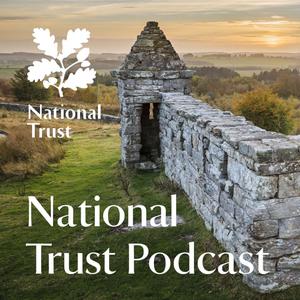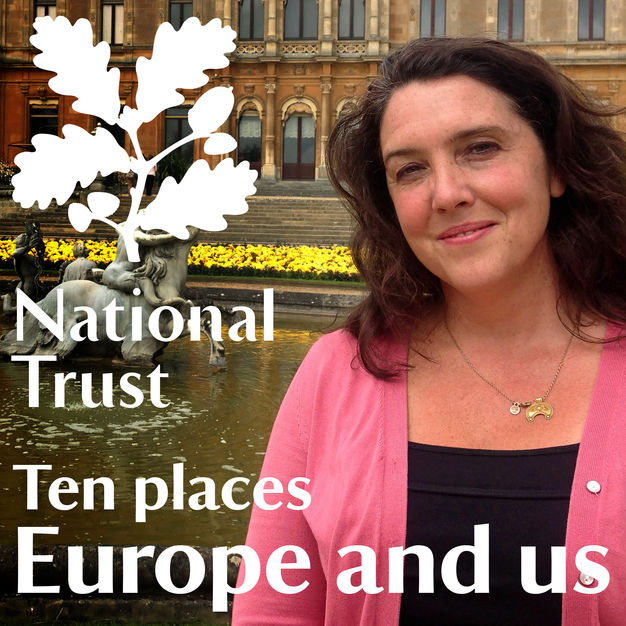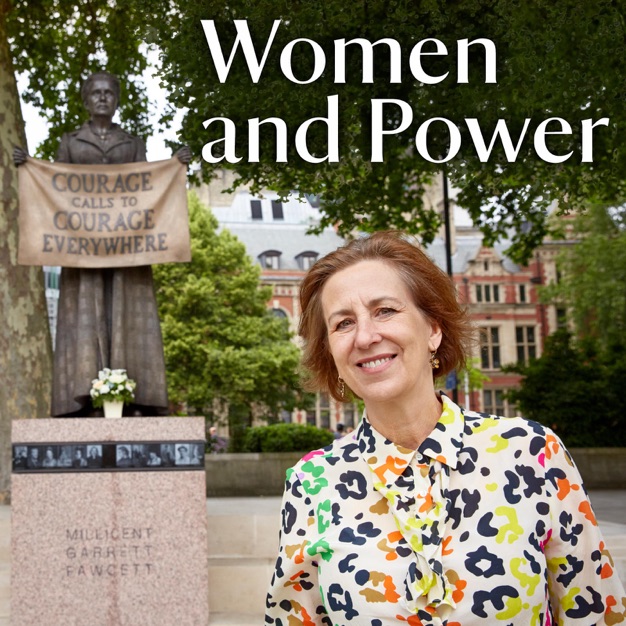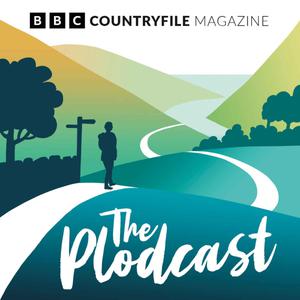
Lives in a Landscape
Documentary series telling original stories about real lives in Britain today
- 28 minutes 1 secondRIP
Alan Dein travels to Nottingham to meet with the 4th & 5th generations of a family firm of Funeral Directors (with a 6th generation already on the horizon). When furniture maker and dealer Arthur William Lymn started 'undertaking' funerals with his son Harold Percy in 1907, their first premises were on Goosegate - next door to a man selling potions and lotions. Although Arthur and Harold could not match the subsequent success of their next-door-neighbours, the Boots Pure Drug Company Ltd, AW Lymn did have to move to larger premises in 1915. And in the hundred years since they have continued to grow, now operating out of 25 offices, employing 110 staff and conducting 3,500 funeral every year.
Last year a brain tumour forced Harold's grandson, Nigel Lymn Rose to hand over the reins of the company to his son Matthew while he underwent brain surgery and recuperated. This summer, fully recovered and back at work, this temporary arrangement was made permanent. As Matthew and Nigel work out the parameters of their new roles within the company (alongside Matthew's aunt, Jackie, and sister Chloe - all also involved in the family firm), Alan Dein goes behind the scenes with them to discover what goes on beyond the formal funeral attire of top hats and tails and Roll Royce hearses. With them he visits the hospital morgue to pick up recently deceased 'patients', enters the world of the firm's embalmers and observes them in the chapels of rest - to find out what it's like to deal with death on a daily basis.
Producer: Paul Kobrak.
27 November 2015, 11:29 am - 27 minutes 46 secondsGoodbye to Boleyn
The Boleyn Ground, Upton Park. Home to West Ham since 1904. No one would call the stadium, or indeed the streets that closely bind it in the borough of Newham, beautiful but it has echoed to one of football's oldest anthems 'I'm Forever Blowing Bubbles' since the 1920's. Now that song and the stones & grass that have been an arena for legends like Hurst, Moore & Peters will not just fade and die but be demolished. Very soon the club will move from E13 to E20 & the Queen Elizabeth Olympic Park, no longer owners but tenants in a very different space. Match days around Green Street and the other roads that bind the stadium to the area will be like every other day. But for these last few months the pavements still reverberate to the returning tribes of Essex, their family ties strong in a place that has greatly changed since Bobby Moore and his other '66 immortals made West Ham a global name.
Amidst the throng on match day, Alan Dein weaves his way through the streets to chronicle lives enfolded by the stadium. On the corner of the ground stands Our Lady of Compassion, in fact it was the church that originally sold the ground to the club. Now their Saturday services are shaped by the footfall of match day. Directly opposite the stadium live two nuns with a new found affinity for the Claret & Blue. Standing on a step ladder, shouting to the arriving crowds a scary looking skinhead offers wise insight into the passing of time and place. Inside Queen's Market, flogging his apples and pears, Bradley is waiting until the clock hits 2.30 before he pulls on his replica shirt and dives out into the thickening crowds making their way towards the big match.
Producer: Mark Burman.
20 November 2015, 6:19 pm - 27 minutes 37 seconds13/11/2015
When pensioners Viv and Fred Morgan read about a teenager committing suicide clutching her teddy, they decided to act - turning their home into a school to help other bullied kids.
They took their Bed and Breakfast in Hatton, Warwickshire and turned rooms into classrooms and built recreation and therapy facilities in the grounds. Now they have 17 pupils attending, more than half of whom have tried to take their own lives in the past.
Children aged between 11 and 16 can be referred by their local authorities and most stay for about a year. At first they often struggle with the curriculum but gradually they join classes - with 22 full and part time teachers covering everything from Science and English through to Photography GCSE.
Fred was 90 when they founded Northleigh House School but even now, four years on, he has no interest in retiring and Viv agrees: "We're not people who sit back and do nothing. When we heard of the situation facing youngsters we just knew we should try and help."
Alan Dein meets pupils and also those who have successfully taken their GCSEs and moved back into mainstream for 6th form. Ruth was diagnosed with Asperger's Syndrome when she was 12 and struggled so desperately with school that she wanted her life to end. When she eventually arrived at Northleigh it took her weeks to develop the trust and build up the energy needed to attend lessons. Now she has her sights set on applying to study law at University:
"When I first walked in here it was like being at a friend's house. I didn't know what to expect but I saw the fire in the grate and the welcoming feel of the place. It has been the best thing that has happened to me coming here and I wish others knew it existed and could help them as well."
Producer Susan Mitchell.
13 November 2015, 11:30 am - 27 minutes 50 secondsCare for Claire
Lives in a Landscape reports from Penistone, where Claire Throssell is being helped by her community after her sons were killed by their father in a house fire exactly a year ago.
As well as killing his sons and himself, Darren Sykes also destroyed much of the house, lighting fires throughout the terraced home and luring his boys into the loft with the promise of a new train set. He had cancelled the home insurance before the blaze and Claire faced both the devastating loss of her sons and also the terrible reminder in a home she couldn't sell because of such extensive fire damage.
Local people wanted to stand firm against such 'evil', according to a local singer and archivist, Dave Cherry, who has helped raise money. Teams of volunteers organised by Reverend David Hopkins at St John's Church and both the Rotary and 41 Clubs, have overseen the rebuilding of the home.
Whilst nothing will replace her loss, Claire tells Alan Dein that such community support has helped her focus on creating a legacy for her sons. Jack, who was 12 when he died, was a promising trumpet player and his younger brother, Paul, was only nine and already showing considerable athletic talent. She has set up awards in their name and wants to ensure that their lives are remembered.
The volunteer project manager is Ged Brearley, who has coordinated 480 plus volunteer hours and manages a core team of 40 through house clearance, stripping back the walls to complete rewiring, re-plastering and re-plumbing.
Dave Cherry was one of the first to offer to help: "That man destroyed everything. Her house, her kids and her life. If we don't do anything then he wins. If we can help this lass then we can stop him from winning."
Producer Susan Mitchell.
6 November 2015, 11:55 am - 27 minutes 37 secondsThe Life of Reilly
For every stand-up comedian that's a household name, there are dozens of hard-working, funny, committed comedians who haven't quite broken through into the national consciousness.
Christian Reilly is a musical stand-up, a wandering minstrel, whose comedy material is delivered through song. He's a popular and successful act who's in great demand on the comedy-club circuit. His diary is packed: Some weeks he'll do two gigs in one night, in two different cities. It's an exhausting schedule. His year, along with so many others, reaches its peak at the Edinburgh festival in August.
In this week's Lives in a Landscape Alan Dein hears Christian's story and travels with him to gigs in Manchester, Liverpool and, ultimately, Edinburgh. From behind-the-scenes at comedy venues, to the share-house Christian rents for a month in Edinburgh with fellow comedians, Alan discovers what motivates Christian, what his ambitions are, and whether he believes he can achieve them.
Producer: Karen Gregor.
7 September 2015, 10:30 am - 27 minutes 32 secondsThe Glastonbury Tales
Alan Dein joins African and Afro Caribbean Catholics from Bristol as they take part in the annual pilgrimage to the ancient abbey at Glastonbury. On board the pilgrim bus, parishioners share their life stories, and explain why they are all drawn to worship in the church of St Nicholas of Tolentino. Producer: Chris Ledgard
31 August 2015, 10:30 am - 27 minutes 36 secondsThe River Cam
Alan Dein tackles the picturesque but crowded stretch of the River Cam that winds in and out of Cambridge. Here, house-boats, punts, rowing boats and cruisers fight for space on what is, the river manager says, the most crowded stretch of river in Britain. Producer: Chris Ledgard.
24 August 2015, 10:28 am - 27 minutes 15 secondsThe Adoption Party
In the last few years, 'adoption activity days' have gathered momentum in the UK, where children waiting to be adopted meet prospective adoptive parents at a party.
The children are often 'hard to place,' either because of medical issues, their age, or behavioural problems. The hope is that once the families meet them face to face, they will get a much better idea of the children, rather than from paper and photo alone.
For these children, the party day is often their last chance to find a family, before they are put into long-term foster care.
Alan Dein joins couples Rob and Sarah, and Emma and John, and single adopter Rachael, as they look for a child.
Producer in Bristol: Sara Conkey.
17 August 2015, 10:32 am - 28 minutes 9 secondsHerd under the Hammer
Alan Dein meets farmer Steve Graham as he sells his herd of 1000 dairy cows - the largest UK sale this year. Having woken at dawn for 35 years to milk the cows, he has decided to sell - but how will he adjust to life without them?
Steve's life has been governed by the relentless pattern of milking twice a day, and the pressures of rearing the cows from birth and caring for them throughout their lives. On his farm in Devon, he says "There are a lot easier ways of making money than milking cows. But if you don't look after them, they won't look after you."
Alan joins Steve on the farm on the final days with his herd and travels with him to the market. When the cows hit the ring, it is not just them being judged, but Steve's reputation on the line.
At auction, Alan hears from fellow farmers about the state of the dairy industry and the pressures put upon them by a falling milk price. But Steve reveals that his reasons for leaving the industry are more personal.
Producer: Clare Walker.
29 April 2015, 10:30 am - 28 minutes 1 secondMy Class My World
Ms Pope runs a tight ship in her class of 27 at Bowling Park Primary School: she has little option given her pupils come from 18 different countries, speak 31 languages between them and have to all pitch in on the frequent occasions when classmates leave and new ones arrive
Maja tells me that teaching her Mum English is one of the hardest things she has ever attempted: she's given up now! She learnt from class-mate Casper, who has taught others in the class. Maja is now teaching L'Annee, who arrived from the Congo and speaks no English at all. This system of catch-up operated by the pupils and ensures that all new arrivals can quickly integrate into Bradford life.
Producer: Sue Mitchell.
22 April 2015, 10:30 am - 27 minutes 59 secondsHoly Island: Should I Stay Or Should I Go?
Alan Dein meets the modern residents of the Holy Island of Lindisfarne. While the recorded history of of the place can be traced back to the 6th century and includes the followers of St. Aiden and St Cuthbert, the current residents try to maintain a way of life that has existed for hundreds of years. Where the monks of Lindisfarne had contend with the Vikings and the Reformation, today's residents face an annual invasion of half a million tourists.
With the help of residents - both young and old - Alan Dein explores their options... whether they should stay on island and keep the old industries going, or leave and discover what the wider world has to offer. Fishermen Andrew and Stuart Johnson, farmer Alison Brigham and retiree Brian Paterson have always lived on the island... recent school-leavers Molly Luke and Joel Rain are planning to leave in the autumn... and island shop keeper Gary Watson left only to come back. But what is the draw of the place?
When the tide is out coachloads of tourists and pilgrims flood onto the island. But when the tide comes in and the island is cut off from the mainland, the visitors disappear and silence descends.
Producer: Paul Kobrak.
15 April 2015, 10:02 am - More Episodes? Get the App
Your feedback is valuable to us. Should you encounter any bugs, glitches, lack of functionality or other problems, please email us on [email protected] or join Moon.FM Telegram Group where you can talk directly to the dev team who are happy to answer any queries.
 British Academy events
British Academy events
 National Trust Podcast
National Trust Podcast
 Bettany Hughes’s Ten Places, Europe and Us
Bettany Hughes’s Ten Places, Europe and Us
 Women and Power
Women and Power
 BBC Gardeners’ World Live -The NEC Birmingham 12 - 15 June 2014
BBC Gardeners’ World Live -The NEC Birmingham 12 - 15 June 2014
 The Plodcast
The Plodcast